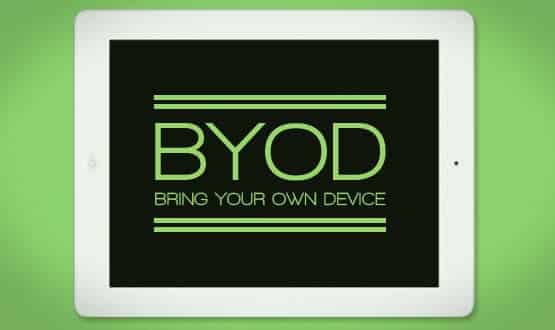Devices and desires
- 6 September 2012

‘Bring your own device’ is a phrase that seems to strike an equal measure of excitement and fear into the hearts of those working in the NHS.
By all accounts, clinicians are starting to hammer on the door of their IT departments, demanding access to flashy tablet devices such as Apple’s iPad and Samsung’s Galaxy range.
But in a cost-cutting, ‘Nicholson challenge’ NHS environment, the idea that trusts will be able to supply £400 devices to every member of staff is unrealistic, bordering impossible.
The answer to this conundrum might lie in allowing clinicians and other members of staff to use the devices that they already use on a regular basis in the comfort of their own homes.
Yet BYOD, as it is popularly known, presents a whole new raft of problems to trusts; from how to overcome information governance and patient confidentially concerns to who is responsible for footing the bill for those devices being used at work?
At the moment, it’s the problems with BYOD that are getting most attention in the NHS. Last week the Royal College of Nursing issued guidance to its members stating that it “does not support the use of staff personal mobile phones for routine provision of services.”
Yet a few trusts are moving ahead with BYOD initiatives, or at least thinking cautiously about the possibility of putting together a strategy.
Royal Liverpool leads the way
One trust that is pressing ahead is Royal Liverpool and Broadgreen University Hospitals NHS Trust, which aims to have a deployed strategy in place by the end of this financial year.
James Norman, director of IM&T at the trust, says Royal Liverpool is exploring the security and mobile device management options available. But initially he hopes to obtain 500 licences for devices that will be used by senior managers and consultants.
“The benefits are going to be quite significant. This has been driven by our clinicians who work across multiple sites and not just in the hospital. They work for other trusts, the university and in the private sector.
"They have the ability to use their own devices in the private sector and we need to get to that point.
“Clinicians are finding it very difficult to manage and co-ordinate their diaries from the private sector and the public sector so they are constantly onto us to help them with scheduling.
“In the longer term, we have been looking at providing access to our systems as we have been going digital across the trust with our clinical portal and our picture archiving and communications system.”
Norman believes that employing a BYOD strategy will allow the trust to address a desktop PC imbalance (it has 4,100 machines for more than 5,000 staff) as well as satisfying the demand for mobile devices.
However, he is more than aware of the to satisfy security concerns, particularly in the light of the robust fines that have recently been issued by the Information Commissioner’s Office in response to data handling errors.
The trust will be implementing “robust” measures, which include a potential partnership with Symantec and the development of secure apps for the devices.
Nurses hold back
Norman believes that BYOD is “essential” if the NHS is to shed its reputation as a “dinosaur” when it comes to IT and modern working practices.
However, while consultants may be clamouring to use their latest gadgets at work, the RCN is not convinced that nurses should be expected to do the same.
Alison Wallis, an e-health advisor for the RCN, and author of last week’s guidance, says: “The onus should probably be on the employers, as nurses aren’t as well paid as consultants.”
The RCN’s advice has been put together in the light of a 2010 survey that suggested 80% of nurses and midwives with mobile phones are already using them for work.
However, it argues that if nurses need to use their phones regularly for work their employers should provide them. It also argues that staff should not “bear the brunt of costs” of work-related phone usage.
The RCN also advises nurses to be aware of the risks of using smartphone applications to make clinical decisions, or record and send patient information.
A further review is planned in two years’ time, but Wallis says the guidance is unlikely to change before then, unless new evidence suddenly appears that BYOD works for everyone.
“There has to be some sort of evidence that this is safe,” she says. “But this guidance is very much for the here and now, and if technology develops then we will look at it.”
New devices, new demands
Unsurprisingly, Robert Campbell, founder and managing director of Ecommnet, a company that specialises in mobile solutions, is worried that if NHS organisations are “over-cautious” about BYOD, the health service will fail to reap the benefits it could deliver.
Ecommnet has been working with Northumbria Healthcare NHS Trust on mobile working, but says: “Banks are already doing this and the NHS is lagging behind.”
Andy Brett, chief technology officer at Channel 3 Consulting, also says that to move forward trusts need to show they have effective products and processes in place to address IG, the protection of patient confidentiality, and the problem of ‘lost’ devices.
“Technical management, such as mobile device management, needs to be in place and individual staff contracts should specify what can be accessed and used.
“Once you have the technical information in place, you can manage the device. You can enable specific apps to be downloaded, and you can operate what information is held and accessed on the device, therefore controlling it,” he says.
Campbell says this is achievable. “We are able to manage the data so that if that data is lost we can flush the corporate data and not the personal data,” he says. “The last thing you want to do is prevent someone from playing Angry Birds with their daughter.”
Brett is optimistic that once a few trusts take the plunge, others will follow. “I believe within the next six to 12 months you will see some trusts enabling BYOD, not by accident but by recognising the need for it at their organisation.
“I expect BYOD to really take off as devices change. Products such as Google glasses, which are wearable, will really affect BYOD as they are different type of device.
“BYOD will benefit a number of users; not just clinicians but portering and administrative staff. After all, we have already seen real benefits at board level, where NHS executives increasingly use iPads, instead of carrying around hundreds of stacks of paper.”




